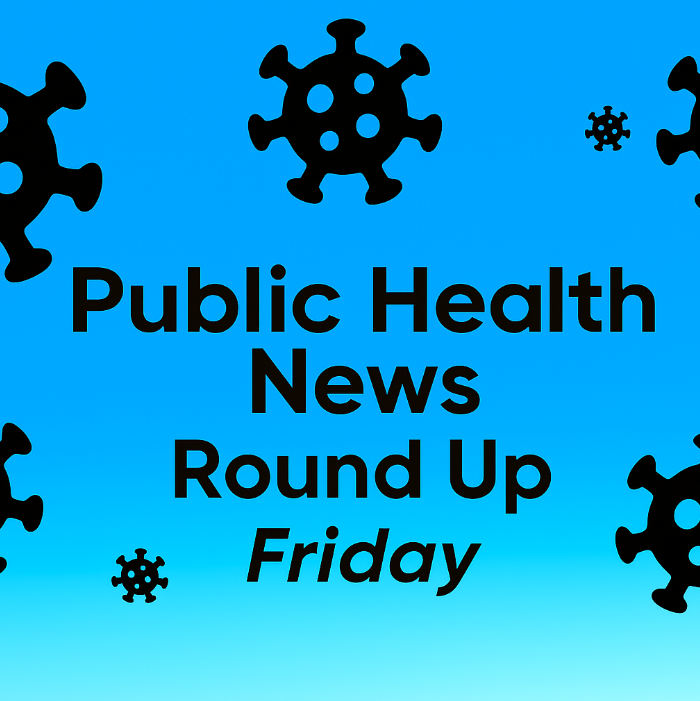
Next Week in Public Health, August 1, 2025
How’s your anxiety?
Mine’s been at a 3-alarm fire stage for weeks. Not fun. Still trying to do the good work in spite of ongoing federal pressures.
Hey, on that topic, have you seen Trawly, our AI assistant? Well, if not check out this great video we put together. You can see my lovely mug in it.
Here’s the scientific trends we’ve been tracking.

And some hot news trends and stories.

Missouri students are heading back to school, but immunization rates continue to lag
As the 2025-2026 school year approaches in Missouri, state health officials are urging parents to update their children’s vaccinations to prevent potential outbreaks of preventable diseases such as measles and pertussis. Following a national trend, vaccination rates, including MMR, are declining, which threatens herd immunity and increases the risk of disease resurgence. This situation is exacerbated by rising exemption requests and misinformation about vaccines, highlighting the need for renewed public trust in immunization benefits to safeguard public health.
Are Prices Up or Down? Parsing Misleading Claims by Trump and Democrats
In the ongoing political debate over inflation and prices during President Donald Trump’s second term, Republicans and Democrats are making conflicting claims, often using cherry-picked data about consumer prices to support their narratives. Experts assert that the fluctuations in prices are influenced by multiple factors beyond the current administration’s policies, such as tariffs, and that these economic outcomes are not solely attributable to presidential actions. Inflation and economic factors remain complex and central to the 2024 election discourse, with both parties assigning blame and credit that may not fully align with the broader economic landscape.
Amid Seeming Error, HHS Finalizes Klote’s Termination As Director of Crippled OHRP; She Issues a Warning
Molly Klote, M.D., was unexpectedly terminated from her role as director of the HHS Office for Human Research Protections (OHRP) as part of a broader federal reduction-in-force that heavily impacted HHS. Her dismissal, believed to be due to a human resources error, has raised significant concerns about the capacity and leadership of OHRP, an agency crucial for overseeing federally funded research. This decision, part of a broader pattern of staff reductions and reorganizations, has drawn criticism from the research compliance community, which fears this could undermine the protection of human research participants and dilute the regulatory framework essential for ethical scientific study.
Medicaid was signed into law 60 years ago. Trump’s tax cuts law chisels away at it
In a significant shift to longstanding U.S. social safety net programs, President Donald Trump’s administration has enacted a new tax and spending law that provides $4.5 trillion in tax breaks while making substantial changes to Medicaid and the Supplemental Nutrition Assistance Program (SNAP). These changes, primarily driven by imposed work requirements and cost shifts to states, are projected to cut over $1 trillion from federal health care and food assistance over the next decade, which may result in increased poverty and reduced aid access for millions, sparking political and social implications. This adjustment comes despite broad public support for maintaining or increasing funding levels for these crucial programs.


